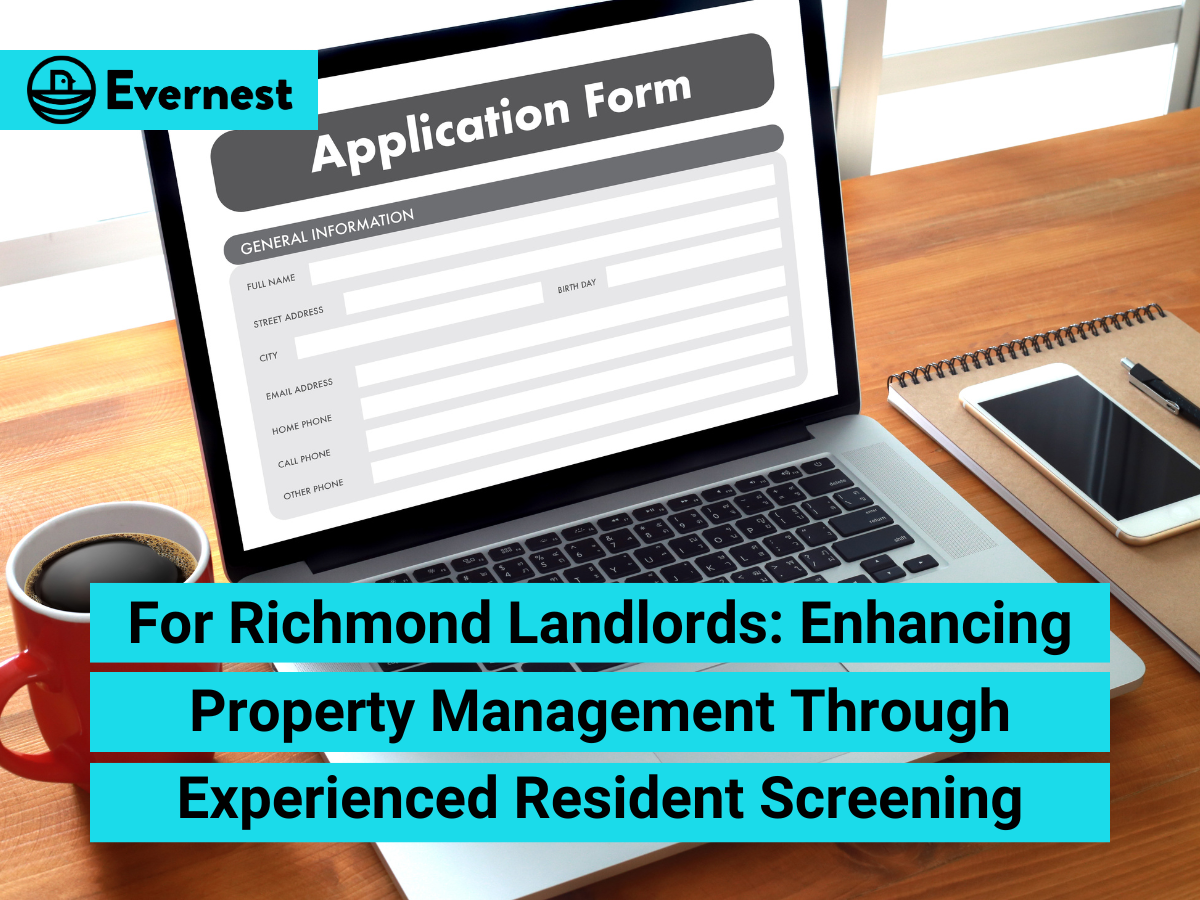In the competitive landscape of property management, one key factor that sets successful landlords apart is their ability to attract and retain reliable and long-term residents. One of the best strategies for achieving this is effective resident screening. Thorough screening not only helps landlords find tenants who meet their criteria, but it also helps create a harmonious community and minimize risks. In this article, we will explore the importance of thorough resident screening for Richmond landlords and discuss various strategies and tools to enhance the screening process.
Introduction: The Importance of Resident Screening
As a Richmond landlord, you understand the challenges of managing properties and maintaining a steady rental income. One of the most effective ways to ensure a reliable stream of rental income is by thoroughly screening potential residents. While it may seem time-consuming, the benefits of a comprehensive screening process far outweigh the costs.
Why Thorough Screening Matters
Resident screening can have significant long-term benefits for Richmond landlords. Firstly, thorough screening ensures stability in cash flow. Tenants who pass strict screening criteria are more likely to pay rent on time and fulfill their lease obligations, reducing the possibility of financial disruption.
Additionally, when residents are carefully screened, the occurrence of maintenance and repair issues tends to be lower. Responsible and reliable tenants are more likely to take care of the property, resulting in fewer damages and maintenance calls. Over time, this contributes to cost savings and increases the profitability of your investment.
Finally, through effective resident screening, you can build a positive reputation within the community. Word-of-mouth recommendations from satisfied residents who enjoy a safe and well-managed community can attract future quality tenants, reducing the time and effort required to find suitable residents for your property.
Developing a Screening Criteria
Before implementing the resident screening process, it's important to develop a clear set of criteria that aligns with legal requirements and your property's specific needs. Understanding and complying with fair housing laws is essential to avoid any discriminatory practices.
In addition to legal compliance, your screening criteria should include factors that provide valuable insights into an applicant's suitability as a resident. Some common criteria to consider are:
Credit Score: A credit report can give you an overview of an applicant's financial responsibility and their ability to manage their financial commitments.
Employment History: Verifying an applicant's employment history can help determine their stability, income level, and ability to meet their rental obligations.
Past Rental History: Contacting previous landlords can provide valuable information about an applicant's rental behavior, including their payment history, adherence to lease terms, and rapport with neighbors.
Criminal Background Checks: Vetting potential residents through background checks may help identify any potential risks or liabilities associated with them.
Implementing the Screening Process
Once you have defined your screening criteria, it's time to put them into action. The screening process typically involves several steps:
Application Forms: Create comprehensive application forms that collect detailed information about the applicant, including personal, financial, and rental history. The more information you have, the better equipped you will be to evaluate the applicant's suitability.
Interviews: Personal interviews allow you to interact with the potential resident and gauge their compatibility with your property and community.
Reference Checks: Contacting previous landlords and employers to verify the applicant's rental and employment history can provide valuable insights into their past behavior and reliability as a tenant.
Implementing a technology-driven approach can streamline the screening process and make it more efficient. Online resident screening services, for example, can provide credit reports, criminal background checks, and rental history verification. Property management software with integrated screening features allows you to seamlessly manage the entire resident screening process from start to finish.
Professional Help: Background Checks and Training
For landlords who prefer to outsource the screening process, there are property management firms specializing in conducting comprehensive background checks. These firms have the expertise and resources necessary to thoroughly screen applicants and provide you with detailed reports.
Alternatively, you may choose to provide training for your staff on how to interpret screening results effectively. Equipping your team with the knowledge and skills needed to analyze credit reports, rental history, and employment verifications can lead to more accurate assessments and better decision-making.
Handling Difficult Residents: Preventive Measures
Even with a meticulous screening process, some residents may still prove challenging to manage. To minimize the disruptions caused by difficult residents, it's important to employ preventive measures:
Clear Communication: Communicate property rules and the consequences of violation effectively from the very beginning. A well-written lease agreement and comprehensive community guidelines can help in setting expectations and establishing boundaries.
Regular Inspections: Schedule regular inspections to proactively identify and address any issues before they escalate. Conduct inspections with an open line of communication to encourage residents to report any concerns promptly.
Dealing with Issues: Legal Actions and Conflict Resolution
Despite preventive measures, conflicts and issues may arise between landlords and residents. It is important to be prepared to handle these situations:
Legal Actions: Familiarize yourself with the eviction processes and other legal recourse available in your jurisdiction. Understanding and following the proper legal procedures can help protect your rights as a landlord and resolve issues efficiently.
Conflict Resolution: Developing effective conflict resolution strategies can save time, money, and unnecessary stress. Encouraging open and respectful communication can often help resolve disputes without escalating to legal action.
Conclusion
Resident screening is a critical tool for Richmond landlords seeking to enhance their property management practices. By thoroughly assessing potential residents, landlords can reduce turnover, minimize risks, and create a community of responsible and reliable tenants. Implementing a comprehensive screening process, leveraging technological tools, and seeking professional assistance when needed can contribute to long-term benefits such as stable cash flow and lower maintenance costs. By prioritizing resident screening, Richmond landlords can enhance their property management efforts and build a reputation for excellence in rental operations.
Looking for a property management company in Richmond to assist with resident screening and other tenant related matters? Reach out to our local team to learn about our services!


